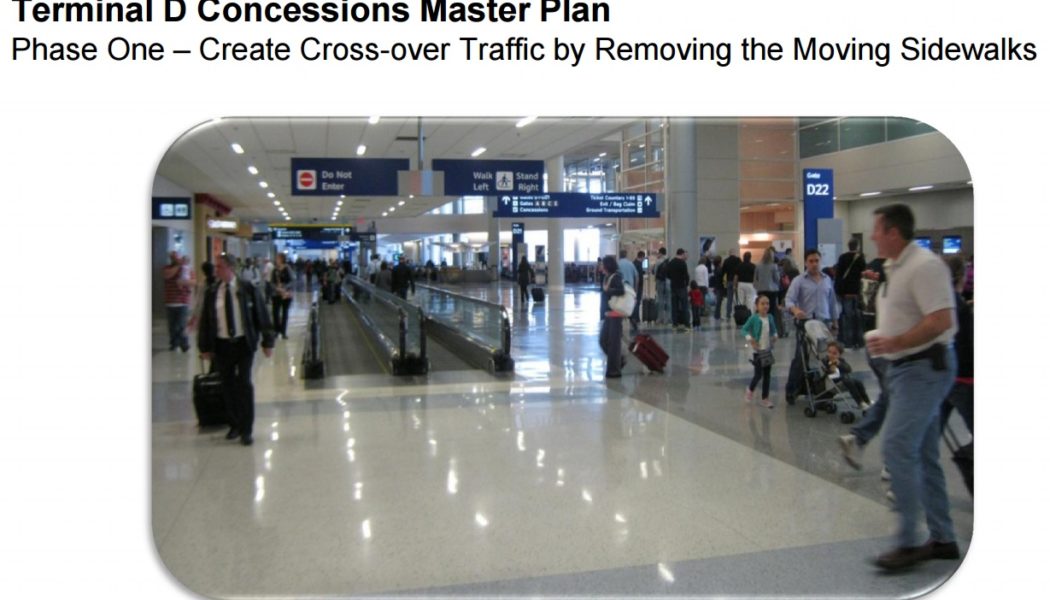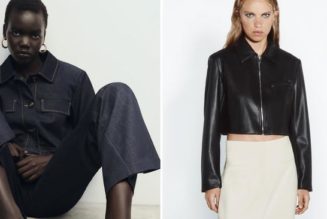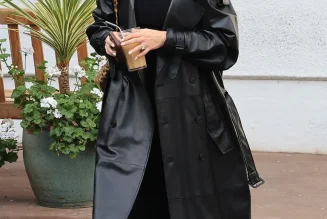When you’re flying, you’re the airline’s customer. You aren’t the airport’s customer. The airport doesn’t even usually know who you are!
And airports actually see you as the product. Their real customers are the airlines, and they serve local politicians as well. That’s why airports like Dallas – Fort Worth and Chicago O’Hare removed moving walkways that made it easier for passengers to get from one end of a terminal to the other. They want passengers to stop into shops and buy stuff. Those convenient moving walkways just encouraged people to ride past those stores.
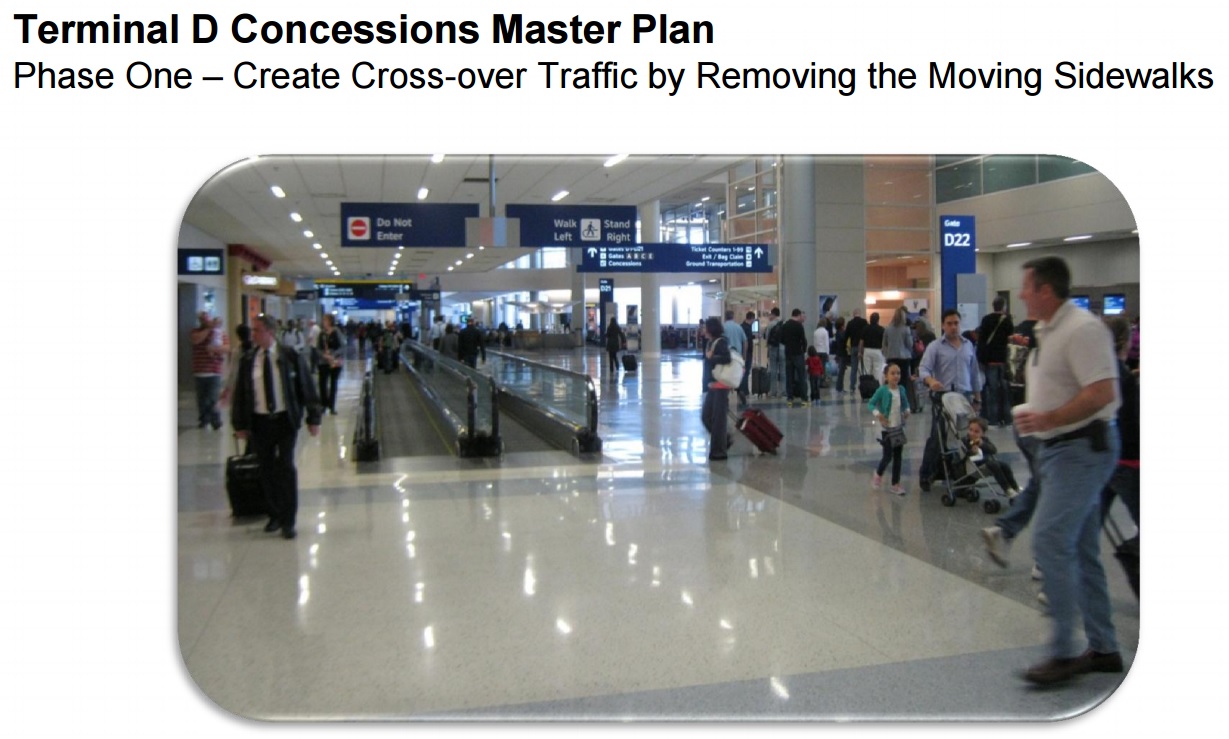
Both airports and frequently airlines share in the revenue generated by retail sales – not just the retail brands and concessionaires themselves. That’s why they’re encouraging you to shop.
Terminal renovations are also often funded by selling the income streams from the terminal to a private developer. Those developers then favor high-end shops – that generate perhaps fewer but higher-dollar transactions.
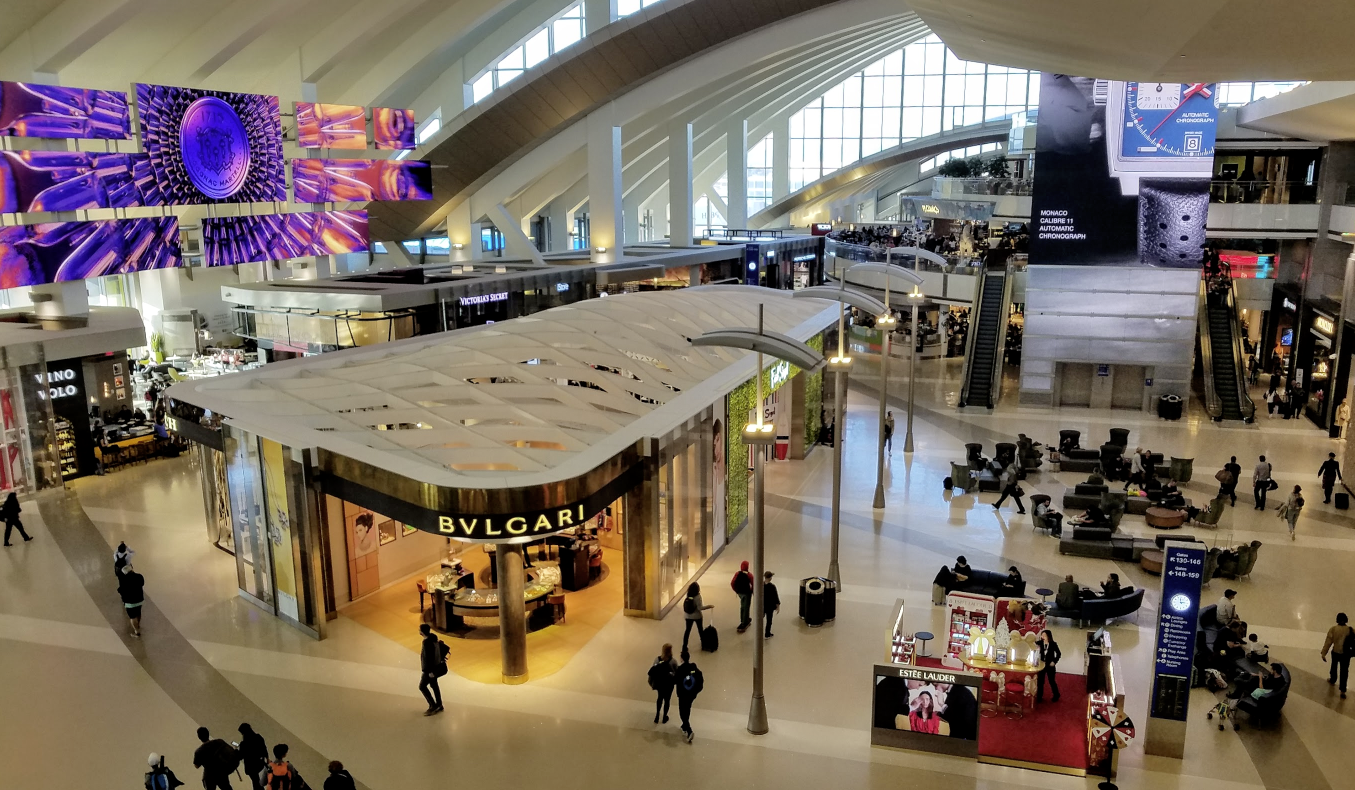
LAX Tom Bradley International Terminal
Who exactly, though, is going shopping at the airport for Louis Vuitton, Chanel, and Cartier? Does this even make any sense? Those stores are often empty when I pass by, yet they’re proliferating across airports around the world.
Are people really buying Gucci, Hermes, and luxury goods at the airport?
San Francisco International pic.twitter.com/QlTl0mG8LO
— Tyler | Kenji Capital (@KenjiCapital) June 22, 2024
Here are 5 reasons why people are buying Hermès, Prada, and Gucci while waiting for their flights – and why airports target this.
- Passenger demographics skew wealthy especially amongst long haul business and first class customers. You’ll often see the highest-end retailers in international terminals which serve passengers on the most expensive tickets.
- Shoppers are on vacation and doing less tracking of their spending so why not catch them when they’re in a frame of mind to bring home an expensive souvenir or gift?
- Home towns may not have these stores in a sense it’s like shuffling passengers from small cities through a major connecting hub that can support long haul widebody flights to far-flung destinations. Those small cities may not have enough customers for a Louis Vuitton store, but the small number of potential Louis Vuitton customers in each of those cities are also people more likely to travel. Airlines are bringing all of them together in one place!
- They’re jet lagged and bored and not thinking straight whether it’s about the cost of the items, the wisdom of purchasing them, or the absurdity of what Rene Girard called “mimetic desire.”
- Money laundering buying expensive goods, carrying those goods out of the country, and selling them at a foreign destination for foreign cash – that may not be repatriated when the passenger returns home.
Man is the creature who does not know what to desire, and he turns to others in order to make up his mind. We desire what others desire because we imitate their desires.
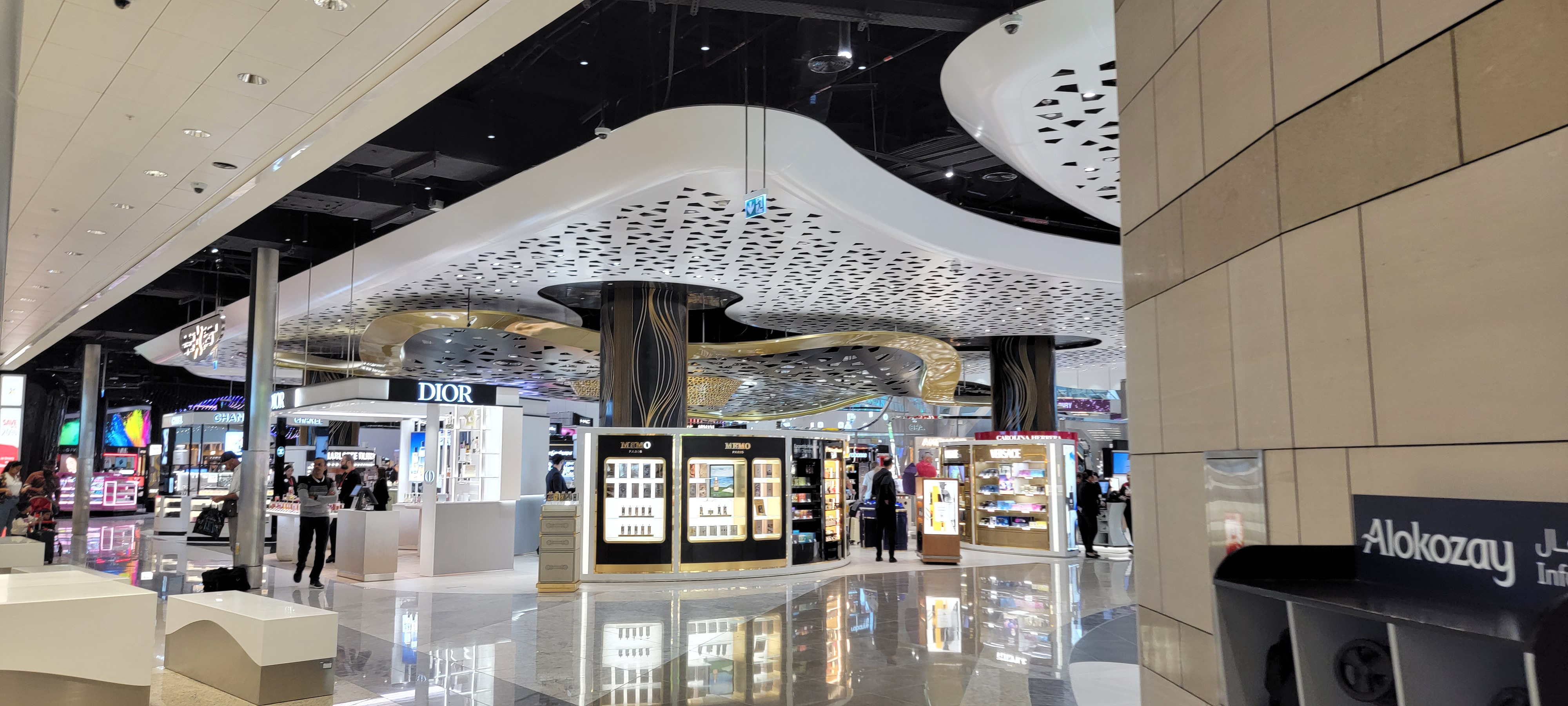
Ultimately, the allure of luxury brands at airports, driven by strategic placement and targeted marketing, ensures that even the most discerning travelers find themselves tempted to splurge while waiting for their flights – all to benefit the terminal’s residual claimants.
